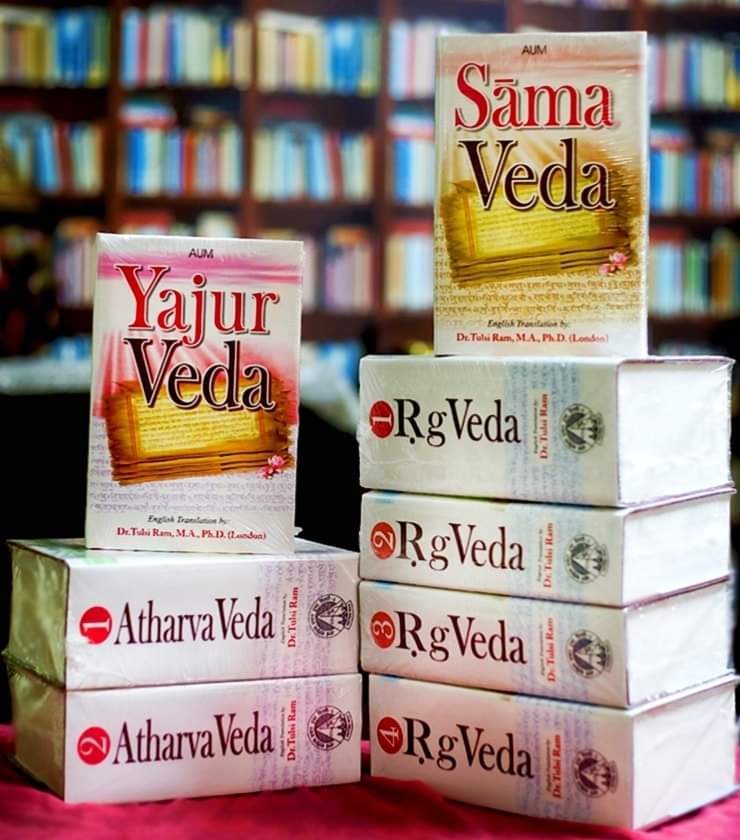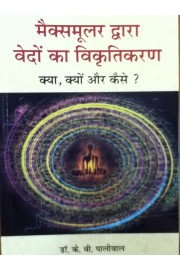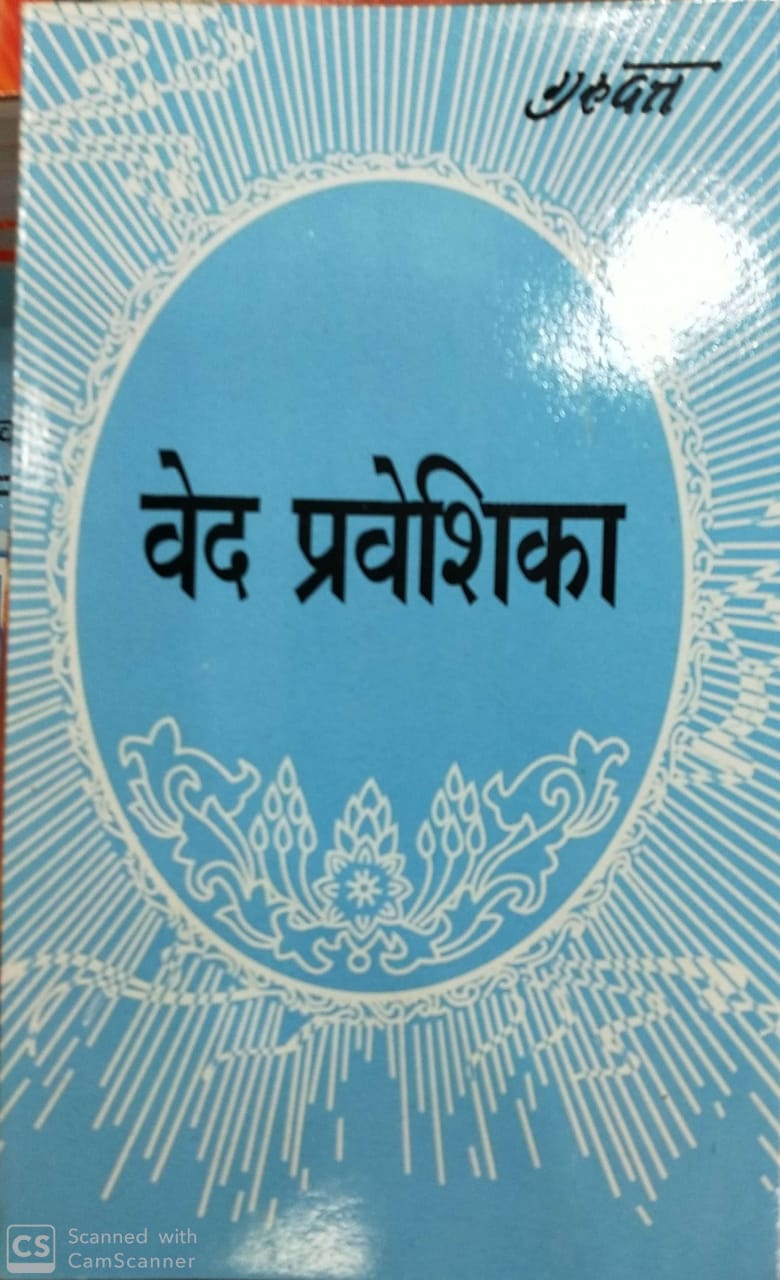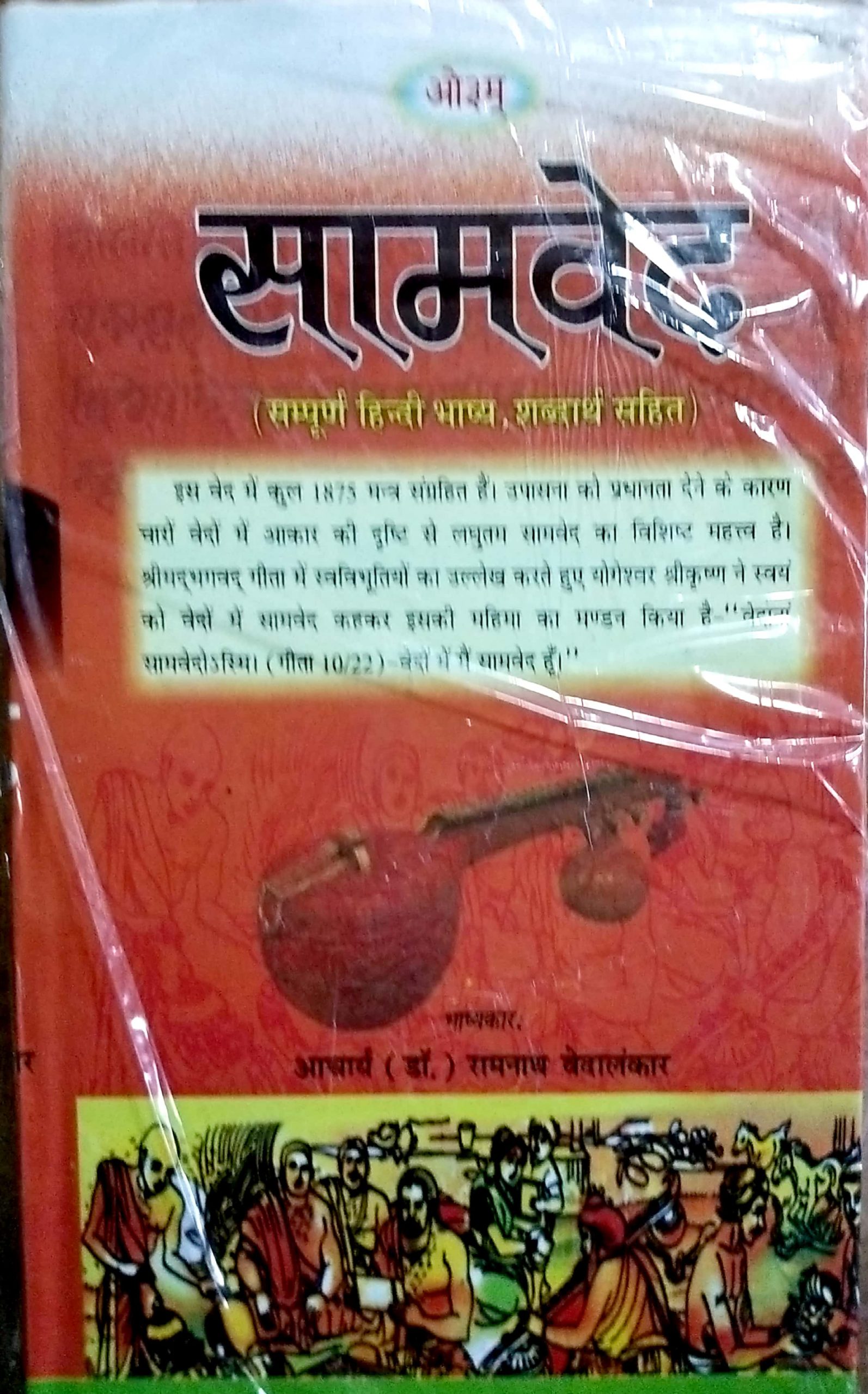Description
VEDIC MONOTHEISM
_______________
Complete Vedas with English Translation in 8 Volume.
₹5100 .00
____________
Vedic philosophy revolves round singularity of God. There is no mention of plurality of God in Vedas. Vedic religion is pure unadulterated Monotheism. According to Hoy Vedas, God is one, not many :
Verily He is one
Single, indivisible, supreme reality.
– Atharva Veda 13/4/20
Oneness of God is the axis round which the philosophy of Vedas revolves. None but God alone reigns and rules over the whole universe. True kingship belongs to Creator of the cosmos. He alone is the Supreme Sovereign of the universe :
He is the sole sovereign
Of the universe.
– Rig Veda 6/36/4
There is none who equals him. He is One, without parallel :
He is one, unparalleled
Through His wondrous, mighty
And formidable laws and deeds.
– Rig Veda 8/1/27
Vedic philosophy does not approve of polytheism. There are no gods except one God, who is the Lord of lords. Only He is worthy to be worshipped and fit to be adored :
There is only One
Who ought to be adored
By the people.
– Atharva Veda 2/2/1
Holy Vedas declare that God alone is the unchallenged Lord of the whole creation. All sorts of eulogy, adoration and prayer befit Him only. Man does not deserve to be eulogised and deified by man. The deification of man by man is not permitted by Vedic religion. Therefore, it behoves man to worship the Great Lord of the cosmos only :
O friends,
Adore none else but Providence
Who is supreme bestower of bliss
And thus thou wilt not suffer;
Eulogise Him in congregation
And sing songs of His glory repeatedly
– Sam Veda 242
God is singular, but his names are plural. All the epithets mentioned in Holy Vedas are ascribed to one God, who is Creator of the cosmos. Shiva, Shankara, Brahma, Vishnu, Mahesh, Ganesh, Indra, Mitra, Varuna, Agni, Yama etc. are the epithets of one Supreme Being, who is formless, featureless, birthless and bodiless. He is unborn, eternal, immortal and everlasting. He has no agents, no intermediaries, no representatives, no incarnations and no partners. He has neither father, nor mother. He has neither wife, nor sons, nor daughters. He has no attachment. But He is Benevolent Father of all his children, and imparts equal love impartially to all his creatures. He is kind to all, cruel to, none. His first name is Om. But He is evoked and adored by several other names which are written in Vedas
He is One Brahma
The Creator of the cosmos
Who pervades and protects
And enlightens aft beings
He is One Supreme Entity
Whom sages call by various names
Such as Indra, the glorious
Mitra, the benign friend
Varuna, the greatest, the noblest
Agni, the resplendent, the bright
Yama, the dispenser of justice
Matarishwa, the almighty.
– Rig Veda 1/164/46
He is Omnipotent, Omnipresent and Omniscient. He is All-powerful and All-pervasive. He pervades, permeates and penetrates all things and all hearts
He, the all-pervasive
Pervades all beings
Within and without.
– Yajur Veda 32/8
He reigns magnificently and munificently over the whole universe. He is unparalleled and unequalled emperor of the cosmos created by Him. He is the One and the sole Sovereign of all creation, animate and inanimate. He is the unchallenged Master of. the whole cosmos :
Thou art Lord of lords.
– Rig Veda 1/94/13
God does not have face, form, features, signs and symbols. He has no body. He is formless, featureless and bodiless. He is birthless and deathless. When He does not take birth, He cannot assume body. He cannot be seen, He can be felt. Hence no picture or portrait, idol or statue of God can be made.
God has no image.
– Yajur Veda 32/3
The Western scholars, who drank deep from Vedic spring, have never lagged behind in admiring and appreciating the oneness of God as revealed in Vedas, from the core of their hearts. Count Bjornstjerne, the Norway’s national poet, who was awarded the Nobel Prize for literature in 1903, observes :
“These truly sublime ideas cannot fail to convince us that the Vedas recognise only one God, who is Almighty, Infinite, Eternal, Self-existent, the Light and Lord of the Universe.”
– Count Bjornstjerne
Colebrook, the British scholar, states :
“The ancient Hindu religion as found in the Hindu scriptures (the Vedas) recognises but one God.”- Colebrook
Charles Coleman acknowledges in his book ‘Theophany of the Hindus’, the oneness of God as revealed in Holy Vedas as under :
“The Almighty, Infinite, Eternal, Incomprehensible, Self-existent Being, He who sees everything though never seen is Brahm, the one unknown, True Being, the Creator, the Preserver and Destroyer of the Universe. Under such and innumerable other definitions is the Deity acknowledged in the Vedas.”- Charles Coleman
Livi, the famous Arabic poet, honours and admires the blessed land of Hindusthan and Holy Vedas as under :
“Blessed land of Hind (Hindusthan), thou art worthy of reverence, for in thee has God revealed true knowledge of Himself. What a pure light do these four revealed books afford to our mind’s eyes like the charming and cool lustre of the dawn ! These four God revealed upon His prophets (Rishis) in Hind. Those treasuries are the Sama and Yajur which God has preached. O my brothers, revere these, for they all tell us the good news of salvation. The next two of these four, the Rig and the Atharva, teach us lessons of universal brotherhood. These two (Vedas) are the beacons that warn us to turn towards that goal (universal brotherhood).” – Livi
Dara Shakoh, the son of king Shah Jehan and elder brother of Aurangzeb, comes to the conclusion in Persian language as under :
“After gradual research, I have come to the conclusion that long before all heavenly books like the Quran, the Old Testament and the New Testament etc., God had revealed to the Hindus through the Rishis of Yore, of whom BRAHAM was the chief, His four books of knowledge, the Rigveda, the Yajurveda, the, Samveda, and the AtharvaVeda.” – Dara Shakoh





Reviews
There are no reviews yet.